![]() — หน้าแรก — เกาะติดข่าว
— หน้าแรก — เกาะติดข่าว
ข่าวเศรษฐกิจและธุรกิจประจำสัปดาห์
-
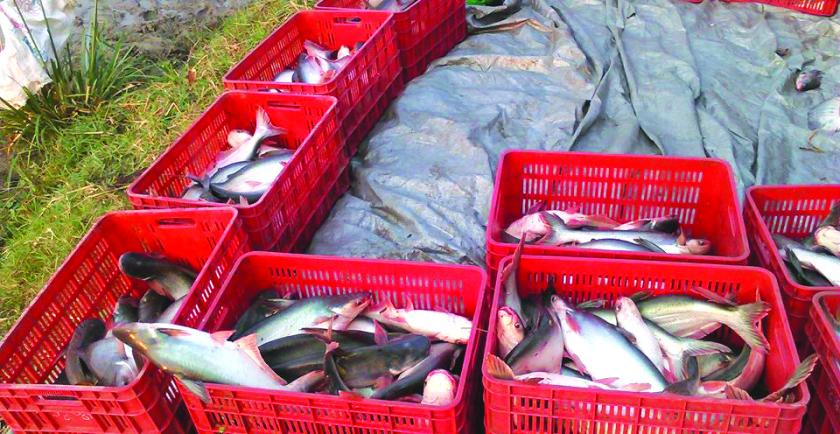
Mandalay Regional Government will fine fish breeding ponds that use farmland about one million kyats
Mandalay Regional Government issued a notice stating that it will fine fishery ponds for using farmland. The notice indicated the fine would be one million kyats. The stakeholders in the industry appealed to the Union Government. Dr. Aung Thu, Union Minister for Agriculture, Livestock and Irrigation, promised that he will help negotiate between the two parties: fish breeders and the regional governments. “The Minister released a notification to allow farmland to be used for other purposes such as fish ponds,” Howeve, the Mandalay Regional Government has included a one million kyat fine for the fish breeders when applying for legal status. The union minister, therefore, promised us he will hold a meeting with regional ministers since the notice from the regional government is differ from the original course,’’ said U Win Kyaing, General Secretary of Myanmar Fishery Federation. -

Construction firms in Yangon are struggling due to the government’s unanticipated new regulation restricting their construction work in early of 2018
The Yangon authorities failed to consult industry players on a new regulation restricting their construction work early this year. Now, the recently imposed restriction has chomped the sector hard, causing businesses further difficulties in an industry which is already struggling. On April 1, the Yangon Development Committee (YCDC) introduced restrictions that limit the height of the ground floor of new buildings to 12 feet, from 17ft previously. The new regulations also prohibit the building of penthouses on the top floor of buildings. U Myo Myint, working committee member of the Myanmar Licensed Contractors Association, said the government needs to notify and consult stakeholders and the public before putting new policies and regulations in place, but there was no early notification about the April 1 regulations. As a result, construction work around the city was disrupted. -

Myanmar’s private sector should be at the driving seat for reform to develop human capital that is vital for Myanmar’s transition as a country
Businesses in the country are best-placed to be at the driving seat for reform, an expert said at a conference in Yangon. On a broader level, the human capital and capacity of employees which the private sector is well-positioned to develop are vital for Myanmar’s transition as a country. Vicky Bowman, director of Yangon-based Myanmar Centre for Responsible Business (MCRB), stressed that human resources managers played an essential role in ensuring that their companies did business responsibly, since corporate governance is about what people do and why. Each element of what makes a responsible business - treating customers responsibly, not paying bribes etc – involves choices, informed or otherwise, by employees. She was speaking at the Professional Development Conference, organised by Yangon-based LEARN Myanmar and Singaporean training firm Professionals Supremacy Corporation Pte Ltd on September 29 and 30. At the event, Myanmar’s lack of human capital was discussed by U Maung Maung Lay, Vice President of the UMFCCI, emphasising the need to address the problem urgently. -
Yoma Bank and Myanmar CP Livestock (MCPL) signed an innovative loan agreement to facilitate livestock dealers and farmers with working capital
Yangon, Myanmar – September 28, 2018 - Yoma Bank signed an innovative loan agreement with the authorized dealers of Myanmar CP Livestock (MCPL), the leading agro-industry and food business in Myanmar. The purpose of the loan is to facilitate livestock dealers, and farmers with working capital to buy animal feed from Myanmar CP Livestock. Myanmar CP Livestock is currently operating three feed mills, located in Yangon, Taunggyi, and Mandalay, with a total capacity of around 750,000 tons a year. As one of Myanmar’s largest banks with over 3,000 employees and 75 branches nationwide, Yoma Bank is proud to be supporting local dealers & farmers with this new program. This Agribusiness Finance Program is Yoma Bank’s new innovative SME financing product, and shares its benefits to all the stakeholders involved. With this program, individual farmers and dealers will have access to the formal financial system to grow their livestock businesses. At the same time, MCPL will be supported to grow their sales on the back of their clients’ increased purchasing power. To apply for this program, applicants are not – as usually requested by Myanmar Banks - required to avail any physical collateral, but instead need to prove a positive track record. -
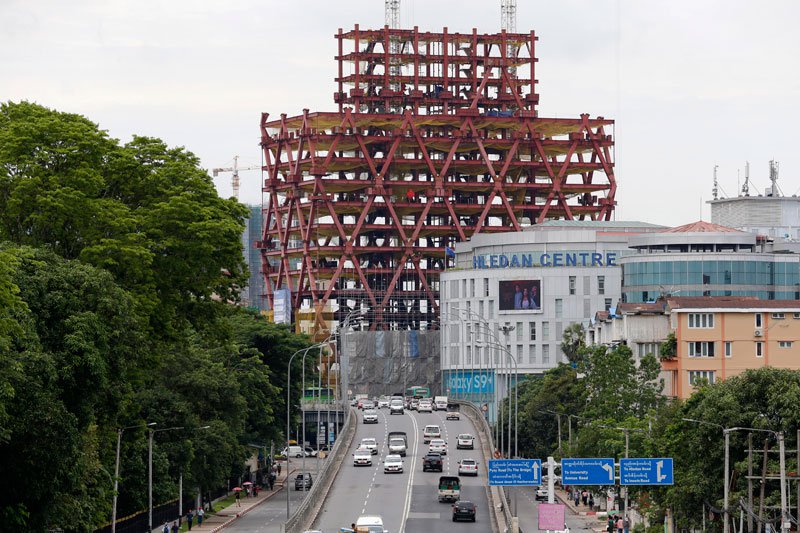
Yangon Region Investment Committee (YRIC) allowed 92 investment enterprises from 10 foreign countries, including China, Singapore, Japan, South Korea and Vietnam
Myanmar's Yangon Region Investment Committee (YRIC) has permitted 92 investment enterprises from 10 foreign countries so far, Xinhua reported quoting the official Global New Light of Myanmar. The enterprises are those from 10 foreign partner countries including China, Singapore, Japan, South Korea and Vietnam. -
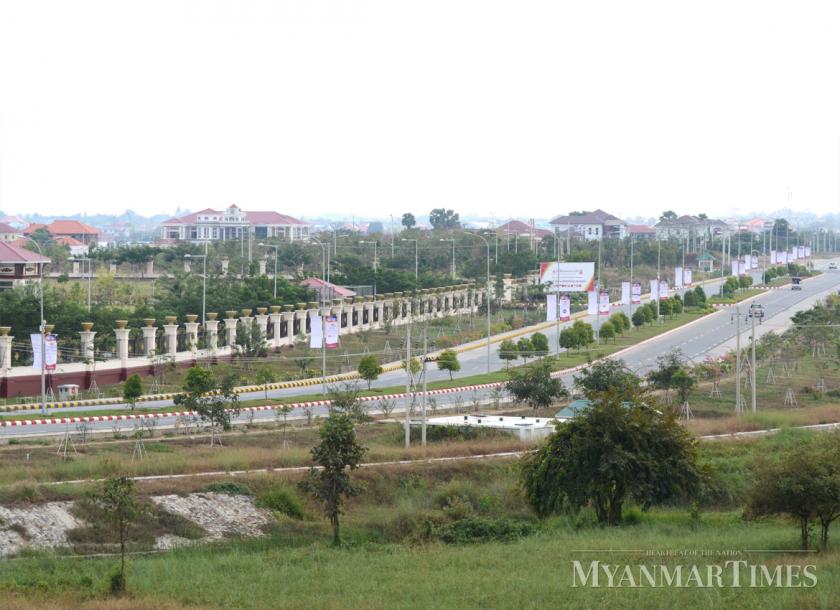
MPs called for the restructuring of loss-making State-owned Enterprises (SOEs) which have not fulfilled their role in driving forward Myanmar's economy
Despite being established with the objective of driving the nation’s economy, State-owned enterprises (SOEs) have not lived up to their roles. Instead, at least a third is leeching off public funds that could have been channeled elsewhere. That needs to change, MPs said. SOEs were established with the aim of producing goods for export and as import substitutes as well as to make goods affordable for the people. However, due to poor technology, weak competitiveness and mismanagement, many SOEs have instead become a burden to the State, the MPs pointed out. There are 32 SOEs managed by six union ministries and among them, only 22 are profitable. According to 2018-19 budget data, estimated profits are expected to total some K2 trillion, with around one third generated by the Central Bank of Myanmar, four state banks and Myanma Insurance. -
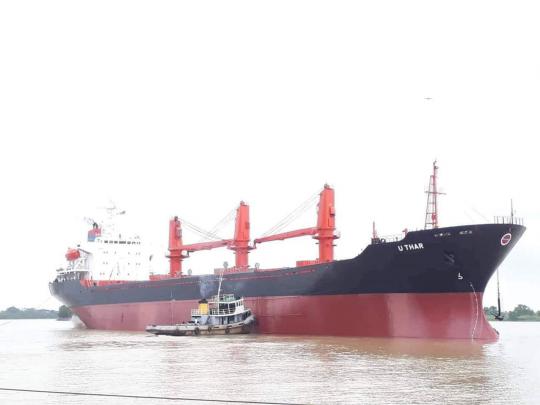
Myanmar Shipyards under the Ministry of Transport built 528 new vessels and repaired 1,598 ships until August 2018
YANGON- Myanmar Shipyards under the Ministry of Transport said that 528 new ships were built and 1,598 ships were repaired up until August this year. Myanmar Shipyards was formed in 1970 as a state-owned enterprise and it has carried out construction and repairing processes of vessels as commercially since the beginning of 1976. “We built 528 newly vessels and repaired 1,596 ships from 1970 to this year August. Starting from October last year, 15 ships were docked and repaired at the shipyards as well as three 400 Ton Working Barges were built for the Ministry of Construction,” said an anonymous officer from Myanmar Shipyards. U Thar, a vessel owned by Myanmar Five Stars Shipping Line, was built at Shikoku Dockyard in Takamatsu, Japan and repaired at the Myanmar Shipyards (Hsinmalaik) and started seafaring in September. -
Myanmar hosted the biggest International Exhibition & Conference on agriculture, livestock, aquaculture & fisheries in Yangon in order to provide a professional business platform for relevant industries
Myanmar, hosted the Agri - Livestock - Aqua Fisheries Cambodia 2018. This event was the biggest international exhibition and conference on Agriculture, Livestock, Aquaculture and Fisheries of its kind, to of been held in Myanmar. In this 2018 edition, the organizer was honored to welcome 30 exhibitors from many countries around the world such as Germany, India, China, Taiwan, Vietnam and Myanmar. The opening ceremony took place on 26 September 2018, at the Rose Garden Hotel, Yangon, Myanmar. The event was held in order to provide a professional business platform for livestock industry professionals, to exchange new ideas and solutions, source products and services, and stay connected within the industry. It proved to be a unique opportunity for entrepreneurs to expand their business market, update the latest innovations, connect with potential customers effectively, and have an objective overview about Myanmar as well as the Southeast Asia market. It was the perfect place for agriculture professionals to discover the latest industry innovations and to build a strong network. -

Local rubber prices are riding rough due to the instability of current dollar exchange rate in Myanmar
The current instability of dollar exchange rate has led to a rough ride for local rubber price, said U Khaing Myint, secretary of Myanmar Rubber Planters and Producers Association. “The prevailing local rubber price is not that different, compared to global rubber price. However, dollar exchange rate fluctuation in local currency market causes a rough price pattern for local rubber”, he said. At present, a ton of RSS3 (ribbed smoked sheets) rubber is worth US$1,300 in global market, whereas local rubber fetches Ks850 per pound. When the US dollar exchange rate hit above Ks1,640 last week, the price of rubber reached a high of Ks890 per pound. Rubber production was halted during the rainy season. It was resumed this month and the price turned to the high side. Nevertheless, production is still less, since the rainy season has not ended, said U Khaing Myint. -
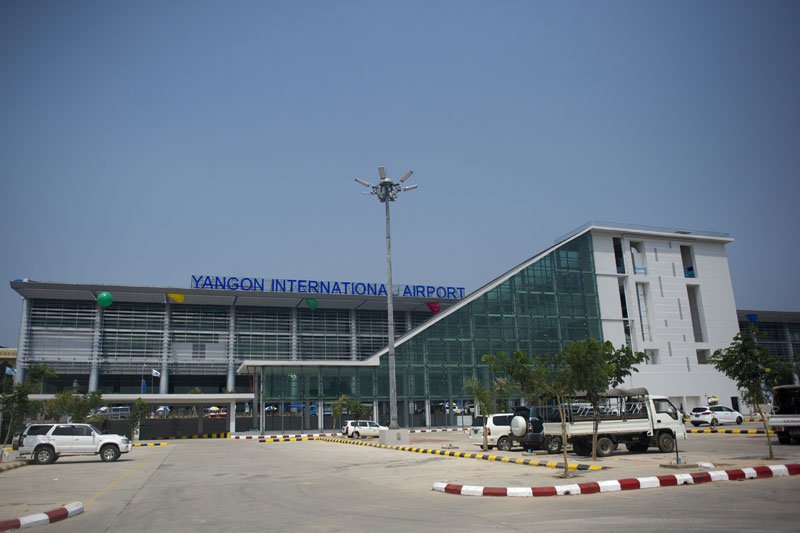
Myanmar government relaxed restrictions on visitors from Japan, China and Hong Kong in order to increase tourism business in Myanmar
With the aim of increasing tourism business in Myanmar, ordinary passport holders from Japan, South Korea, China, Hong Kong and Macao will have visa entry relaxed as 1 year of probation period from 1 October 2018 to 30 September, 2019, state media reported. Travellers from Japan, South Korea and China’s Administrative Regions: Hong Kong, Macao will be allowed visa exemptions to enter and leave Yangon, Mandalay and Nay Pyi Taw international airports, Yangon international harbor, Tachilek, Hteekhee and Kawthoung international airport (Myanmar-Thailand), Tamu and Rechawdar international airport (Myanmar-India).
เกาะติดข่าว
Copyright © 2014 Business Information Center All Rights Reserved.







